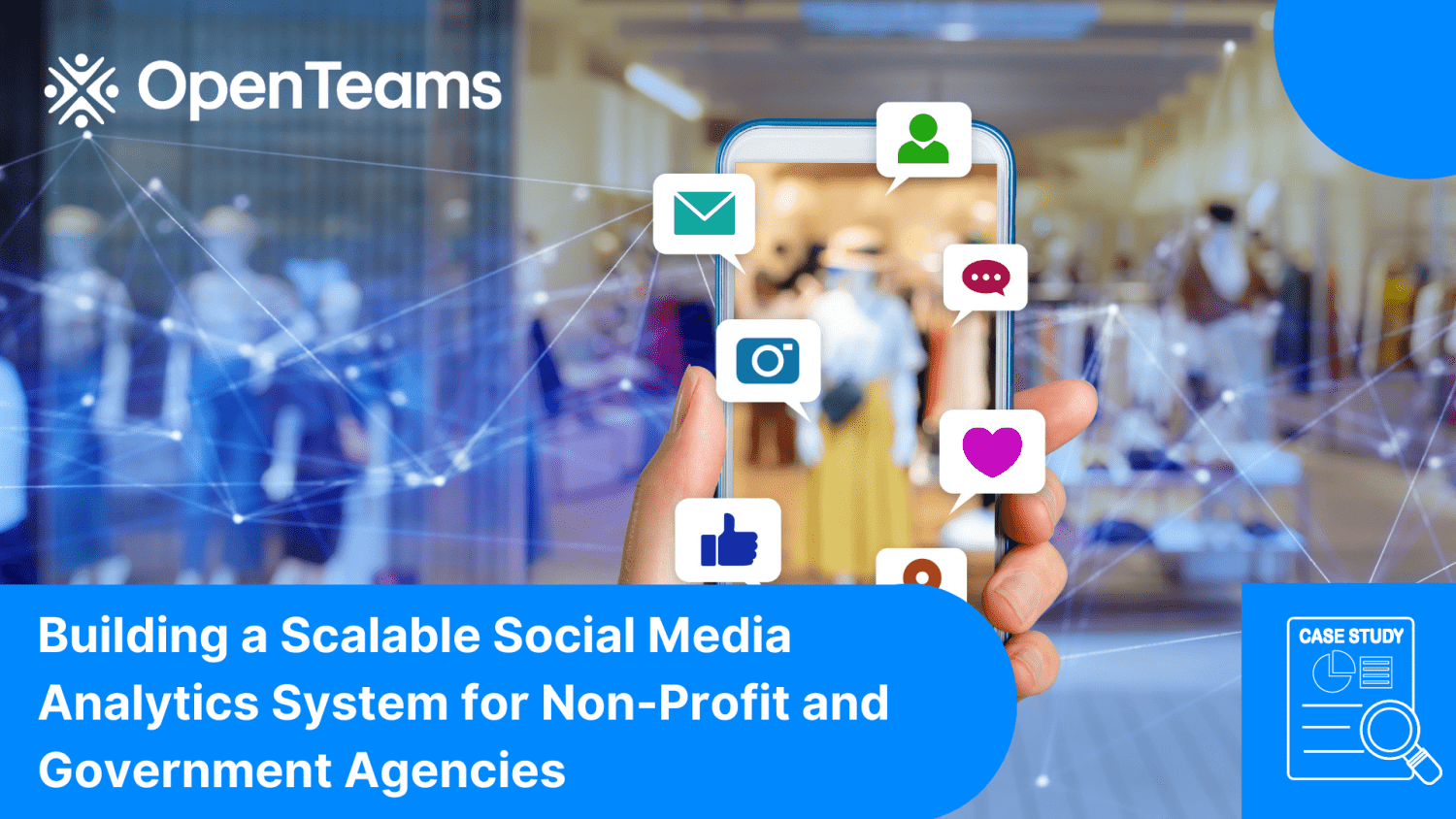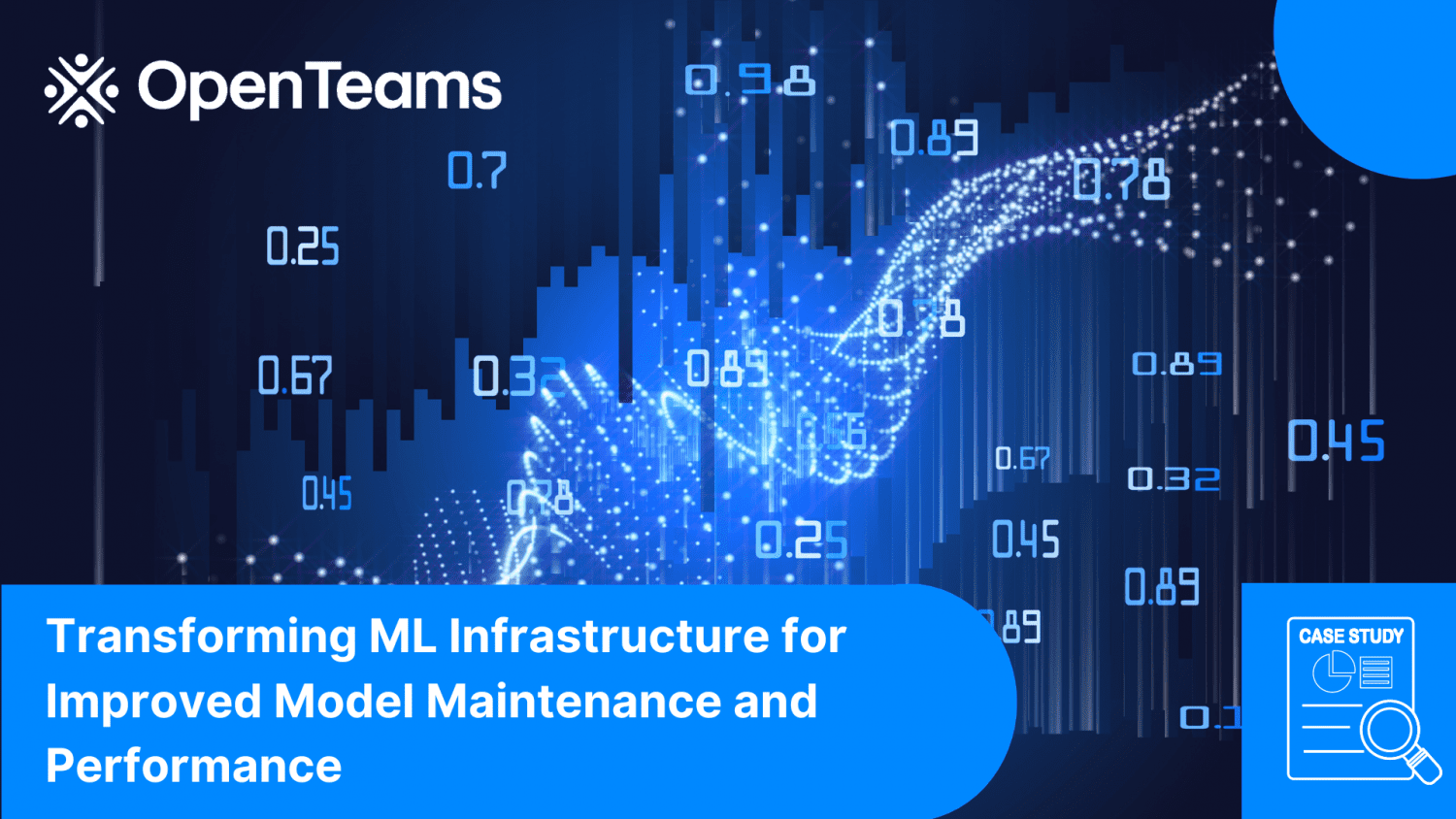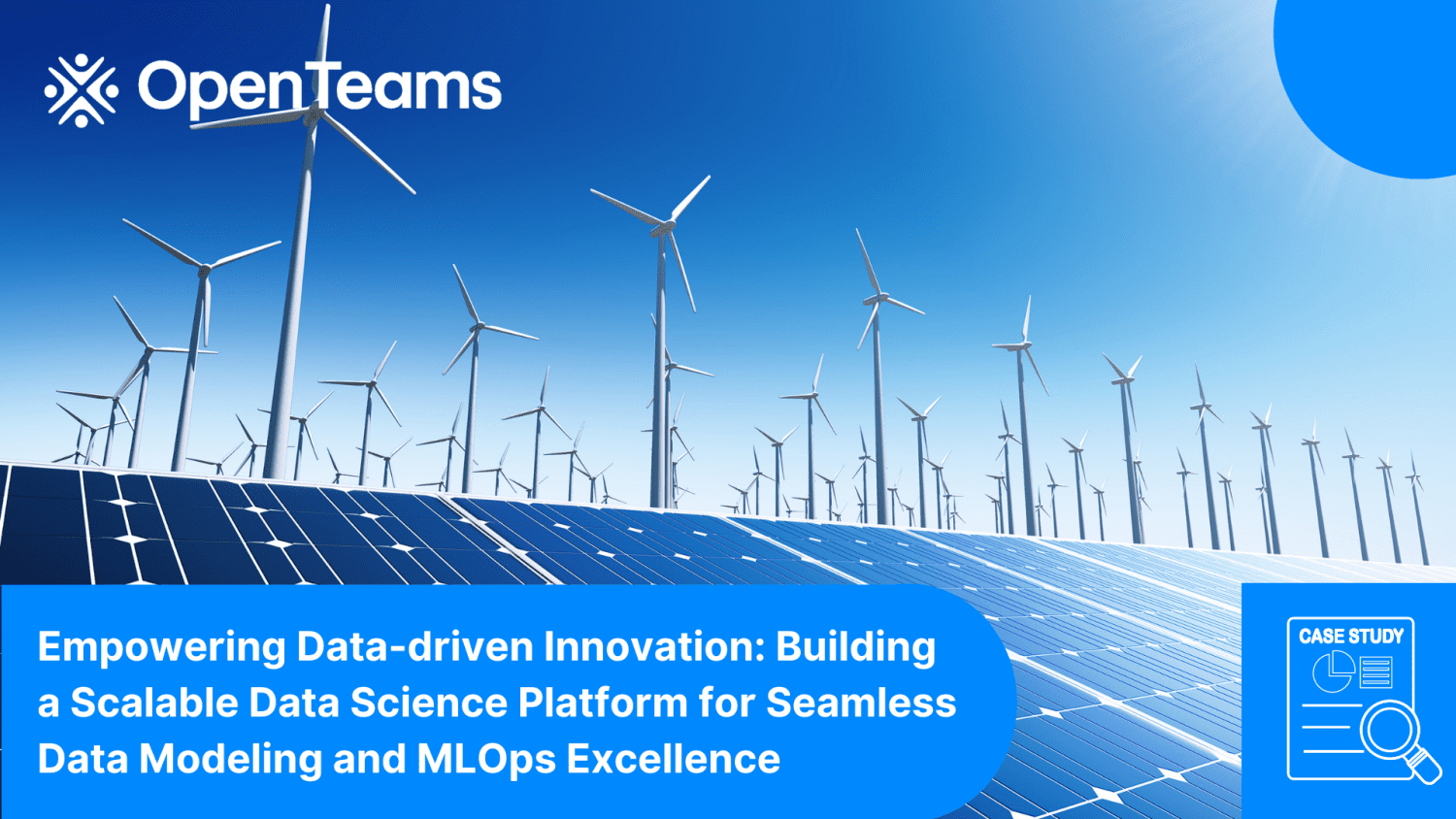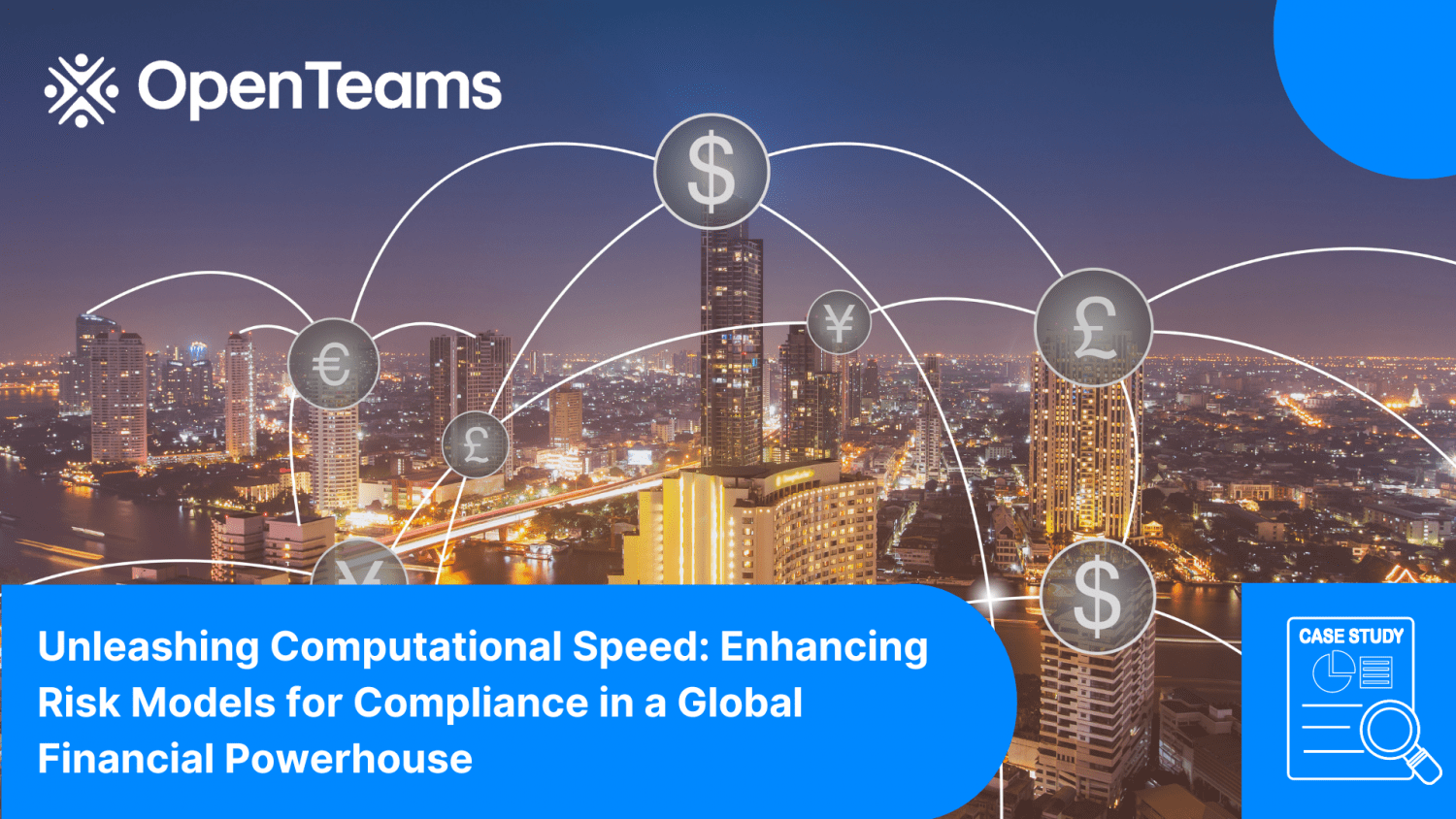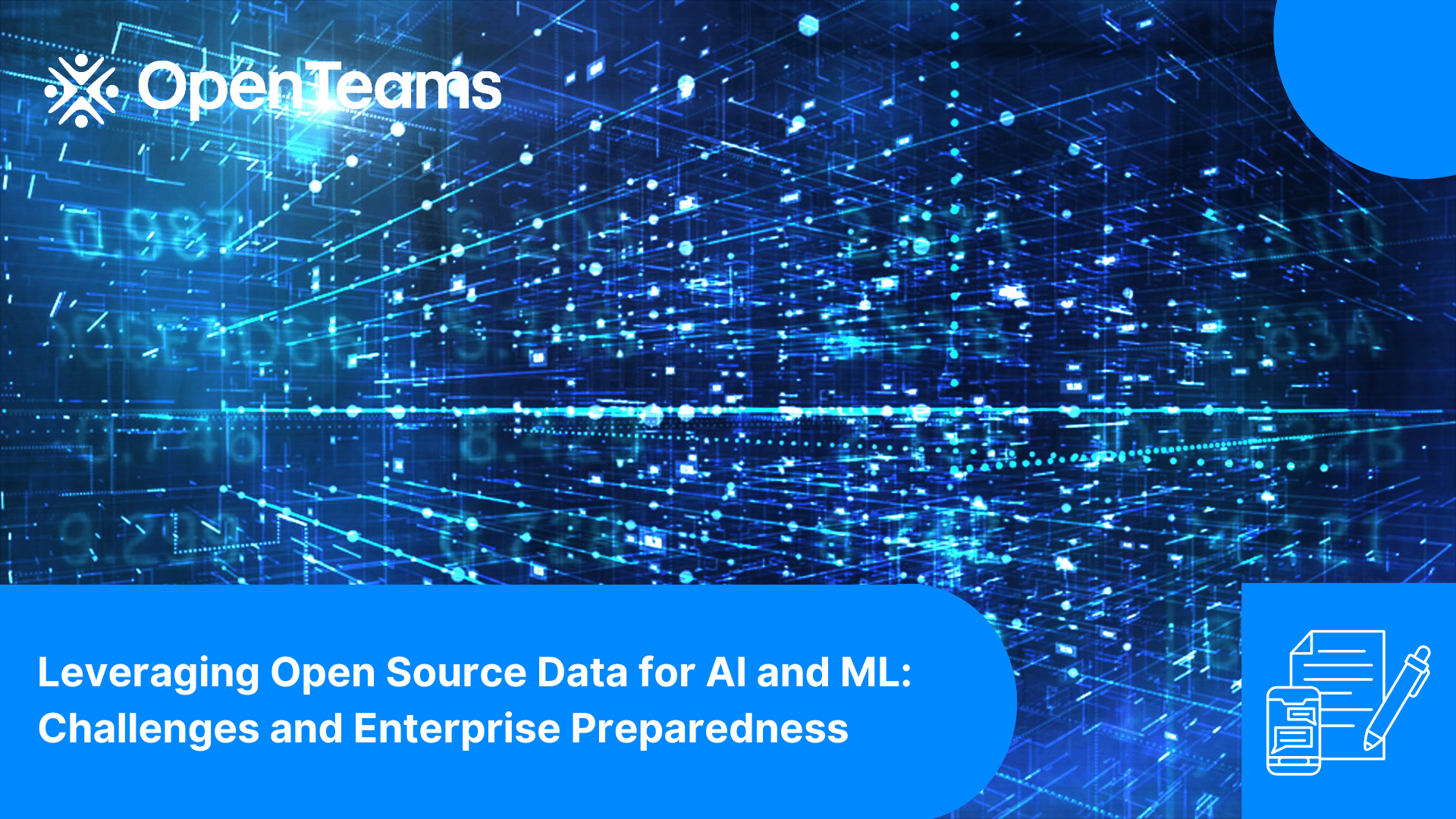
In today’s data-driven world, the development of advanced AI and ML models has become an integral part of numerous industries, ranging from healthcare to finance, manufacturing to marketing. One of the driving forces behind the rapid advancement of these technologies is the availability of vast amounts of open source data. Open source data refers to publicly accessible datasets that can be freely used, modified, and shared by anyone. However, while open source data offers numerous advantages, it also presents challenges that enterprises must navigate to effectively harness its potential.
The Power of Open Source Data
Open source data has democratized access to valuable information across the globe. It serves as a treasure trove for researchers, developers, and enterprises looking to train and improve their AI and ML models. Some key advantages of using open source data include:
Diverse and Abundant Data: Open source datasets cover a wide array of domains, allowing AI and ML practitioners to work with diverse data types and solve complex problems.
Faster Model Development: Access to pre-existing datasets accelerates the model development process, reducing the time and effort required for data collection and preprocessing.
Benchmarking and Collaboration: Commonly used open source datasets provide a benchmark for performance evaluation, facilitating collaboration and comparison among researchers and organizations.
Reduced Costs: Leveraging open source data can significantly reduce the costs associated with data acquisition and licensing fees, making AI and ML development more accessible.
Challenges Enterprises Face
While open source data offers immense potential, enterprises need to be aware of the challenges it presents:
Data Quality and Reliability: Not all open source datasets maintain the same level of quality or consistency, which can impact the reliability and generalization capabilities of AI and ML models.
Privacy and Ethics Concerns: Enterprises must navigate potential privacy concerns when using open source data, ensuring that sensitive information is not inadvertently included in models.
Licensing and Usage Restrictions: Some open source datasets come with licensing restrictions, requiring careful adherence to usage guidelines to avoid legal issues.
Data Bias and Fairness: Open source data may inadvertently contain biases present in the real world, leading to biased AI and ML models that perpetuate existing inequalities.
Data Integration: Enterprises often need to integrate multiple datasets to create robust models. This process can be complex and time-consuming, requiring data preprocessing and harmonization.
Preparing Enterprises for Open Source Data Challenges
To effectively harness the power of open source data while mitigating associated challenges, enterprises should adopt a strategic approach:
Data Governance Framework: Develop a comprehensive data governance framework that defines data quality standards, privacy measures, and ethical guidelines for using open source data.
Data Quality Assessment: Prioritize datasets with clear documentation and established quality measures. Implement data validation processes to ensure the accuracy and reliability of the data.
Bias Detection and Mitigation: Employ techniques to detect and mitigate biases in the data, promoting fairness and inclusivity in AI and ML models.
Legal Compliance: Thoroughly understand the licensing terms of open source datasets and ensure compliance with usage restrictions to avoid legal complications.
Collaborative Efforts: Foster collaboration among AI and ML practitioners within the enterprise. Encourage sharing insights, best practices, and challenges faced when working with open source data.
Data Integration Expertise: Build a team with expertise in data integration, preprocessing, and harmonization to streamline the process of combining multiple open source datasets.
Continuous Learning: Stay updated with the latest developments in the field of AI, ML, and open source data. Encourage ongoing learning to adapt to emerging trends and challenges.
Conclusion
Open source data has revolutionized the AI and ML landscape, providing a wealth of resources that enterprises can leverage for model development. However, the challenges associated with open source data must not be underestimated. By implementing a comprehensive data governance strategy, prioritizing data quality, addressing biases, and fostering collaboration, enterprises can effectively navigate these challenges and unlock the full potential of open source data for AI and ML advancements. In a world where data is a critical asset, mastering the use of open source data is key to staying competitive and innovative in the AI-driven era.
About OpenTeams
OpenTeams is a provider of open source solutions for businesses worldwide. Our goal is to connect organizations with open-source communities to help them optimize their use of open-source technologies while also supporting the communities they depend on. We help companies by being a single trusted vendor to provide service-level agreements for support, training, and general contracting and we help open-source communities by enabling participants to efficiently provide their paid services to organizations so they can spend more of their scarce time on open-source development and less time on business development. We provide unparalleled expertise and resources to help businesses achieve their goals. Our flexible support plans allow organizations to pay for only what they need, and our network of experienced Open Source Architects is available to provide top-notch support and guidance around the world allowing for 24/7/365 support. We are committed to fostering a community of innovation and collaboration. We support OSPN.org which enables open-source contributors to advance their careers as an open source contributor, and we sponsor our OSA community to provide tech-leaders with open-source expertise to gather and discuss how to help businesses achieve better results with open-source.
Related Articles
Computer Vision for Automatic Vehicle Damage Detection and Cost Estimation
Transforming ML Infrastructure for Improved Model Maintenance and Performance
Empowering Data-driven Innovation: Building a Scalable Data Science Platform for Seamless Data Modeling and MLOps Excellence
Unleashing Computational Speed: Enhancing Risk Models for Compliance in a Global Financial Powerhouse
Transforming Armed Forces Training: Reinforcement Learning for Enhanced Adaptability and Strategy Development
Unlock the power of open source for your business today
OpenTeams provides businesses with access to a team of experienced open source professionals who can help them unlock the power of open source technologies, delivering customized solutions tailored to their specific needs and goals. Get in touch with us today to learn how we can help you leverage open source to achieve your business objectives.

